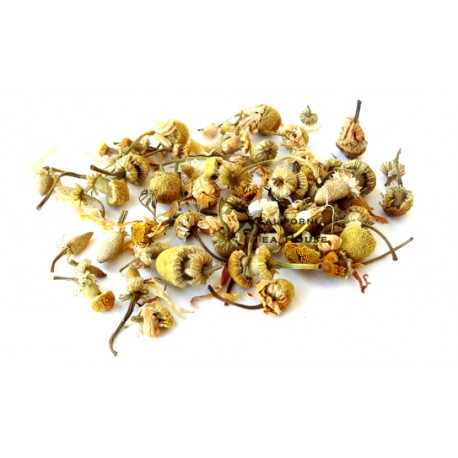
While it may be tempting to share your favorite tea with your furry friend, that’s not always a good idea. Some compounds in tea that are usually healthy for humans may be dangerous to dogs. However, there are teas your dog can drink, and some of them may even provide health benefits. Which ones? Keep reading.
 Photo by Lucrezia Carnelos
Photo by Lucrezia Carnelos
Why is Tea Not Good for Pets?
There are thousands of tea types in the world. We can divide them into two major categories – real teas made from Camellia sinensis plant, and herbal infusions or tisanes made from different plants, herbs, roots, seeds and fruits. All real teas are potentially dangerous to dogs, and some herbal infusions may be dangerous as well.
There’s no doubt that teas contain many beneficial compounds. Real tea contains chlorophyll, antioxidants, caffeine, vitamins, minerals and amino acids. Each of them may provide different benefits to people, and some may even be great for dogs. For example, antioxidants may help boost immune system no matter your botanical family, and amino acids are important for building proteins in every living organism.
Today, it’s possible to find pet food fortified with compounds found in tea – such as catechin EGCG [1]. L-theanine, an important amino-acid abundant in green tea, may even help calm down dogs that are sensitive to storms [2].
But the reason tea may not be the best drink for your pet lies in caffeine. While caffeine may increase alertness in humans, in dogs, even a small amount may be too much. Dogs metabolize caffeine in a different way than humans do and ingesting the same amount of caffeine as the owner, may cause severe side-effects [3]. All real teas contain caffeine unless they were decaffeinated. Moreover, the type of tea doesn’t really determine the total caffeine content – even white teas can contain more caffeine than black teas. In other words, there’s no way to guess the exact amount of caffeine in your tea without testing each sample.
Read more about caffeine levels in different types of tea here.
Don’t panic though. Even if your dog steals a few slurps of your tea, the amount of caffeine will likely not be enough to cause severe side effects.
Which Herbs Are Safe for Dogs?
Luckily, many tisanes are not only safe for dogs, but may provide extra benefits as well. Many adaptogenic plants may be great for animals too. For example, two most popular adaptogens – Tulsi and Ashwagandha, are not only safe for dogs, but may provide anti-inflammatory, anti-cancer and anti-stress properties [4]. Echinacea, a widely used plant for enhancing immune system and fight common colds proved to be beneficial for treating seasonal respiratory infections in dogs, [5] and oregano may provide anti-microbial properties [6].
How Can Machu’s Blend Tea Help Your Dog?
While you may not have the time to boost your dog’s immune system by baking special desserts, sometimes a bowl of tea may be the fastest way to prevent some common issues. Car sickness is one of them. Machu’s Blend is a specially crafted, safe, delicious, and effective way to help your pet enjoy travelling as much as you do.
In fact, the science behind Machu’s Blend may be strong enough to offer an alternative to regular prescription medicine. What is it blended with? Tasty and soothing herbs and roots – chamomile, calendula, skullcap, ginger, and fennel seeds.
Chamomile, calendula, and skullcap may offer a potent soothing effect for humans and may help soothe and calm your pet too. Studies showed that ginger has strong antiemetic properties not only for people, but for dogs as well [7]. It may help prevent vomiting and nausea, two major symptoms of motion sickness.
And yes, Machu Blend is not only a tea your dog will love and drink, but you can drink it as well.
Does your dog have a favorite tea? Share your experiences in the comments below.
Sources:
[1] https://www.researchgate.net/publication/340332969_Green-tea_extract_in_petfood
[2] https://www.sciencedirect.com/science/article/abs/pii/S1558787815000568
[3] https://vcahospitals.com/know-your-pet/caffeine-toxicity-in-pets
[4] S. Priya, A. Mangala Gowri; EVALUATION OF THE ACCEPTANCE OF HERBAL ADAPTOGEN BASED FUNCTIONAL FOOD FOR DOGS
[5] https://pubmed.ncbi.nlm.nih.gov/12784483/




Leave a Reply Cancel Reply